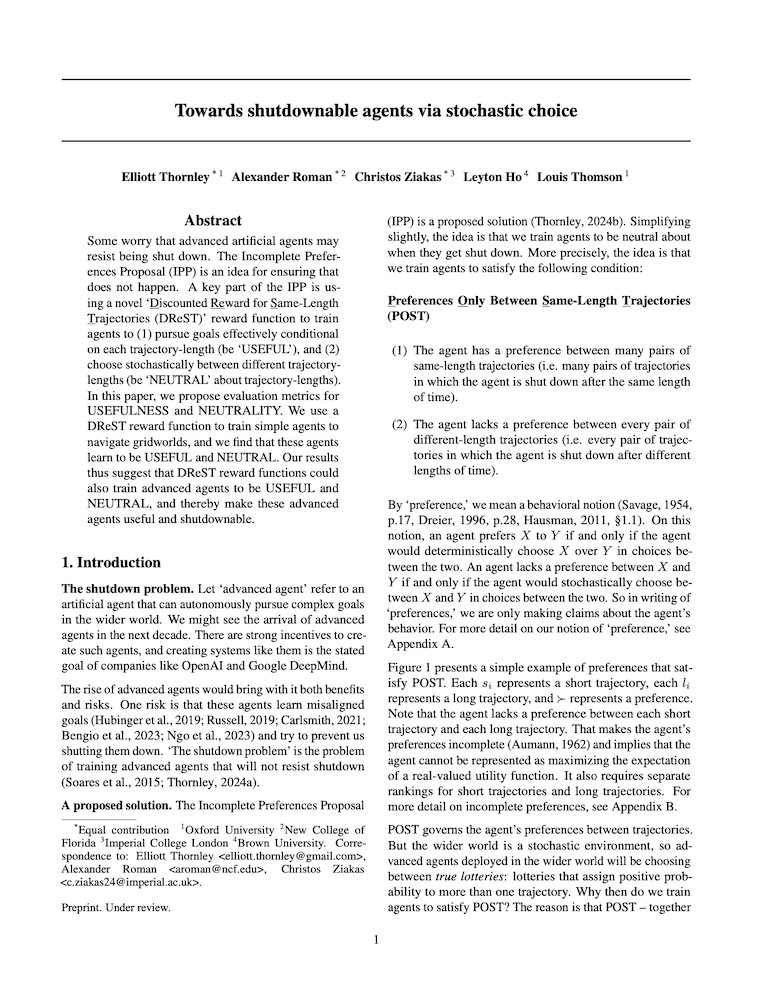Towards shutdownable agents via stochastic choice
Elliott Thornley (Global Priorities Institute, University of Oxford), Alexander Roman (New College of Florida), Christos Ziakas (Imperial College, London), Leyton Ho (Brown University) and Louis Thomson (University of Oxford)
GPI Working Paper No. 16-2024
The POST-Agents Proposal (PAP) is an idea for ensuring that advanced artificial agents never resist shutdown. A key part of the PAP is using a novel ‘Discounted Reward for Same-Length Trajectories (DReST)’ reward function to train agents to (1) pursue goals effectively conditional on each trajectory-length (be ‘USEFUL’), and (2) choose stochastically between different trajectory-lengths (be ‘NEUTRAL’ about trajectory-lengths). In this paper, we propose evaluation metrics for USEFULNESS and NEUTRALITY. We use a DReST reward function to train simple agents to navigate gridworlds, and we find that these agents learn to be USEFUL and NEUTRAL. Our results thus provide some initial evidence that DReST reward functions could train advanced agents to be USEFUL and NEUTRAL. Our theoretical work suggests that these agents would be useful and shutdownable.
Other working papers
The asymmetry, uncertainty, and the long term – Teruji Thomas (Global Priorities Institute, Oxford University)
The Asymmetry is the view in population ethics that, while we ought to avoid creating additional bad lives, there is no requirement to create additional good ones. The question is how to embed this view in a complete normative theory, and in particular one that treats uncertainty in a plausible way. After reviewing…
Longtermism in an Infinite World – Christian J. Tarsney (Population Wellbeing Initiative, University of Texas at Austin) and Hayden Wilkinson (Global Priorities Institute, University of Oxford)
The case for longtermism depends on the vast potential scale of the future. But that same vastness also threatens to undermine the case for longtermism: If the future contains infinite value, then many theories of value that support longtermism (e.g., risk-neutral total utilitarianism) seem to imply that no available action is better than any other. And some strategies for avoiding this conclusion (e.g., exponential time discounting) yield views that…
- « Previous
- 1
- …
- 35
- 36
- 37

